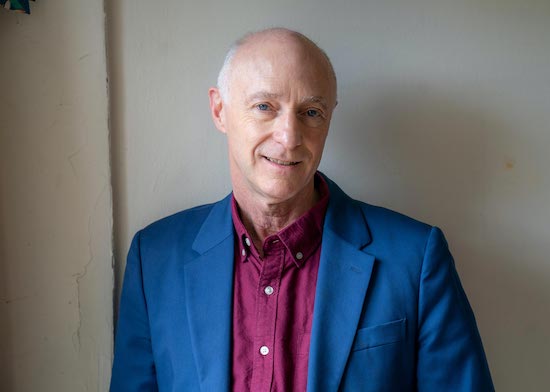Witty Wheeler premiere highlights Boston Chamber Music Society program

Scott Wheeler’s Sextet was given its world premiere by the Boston Chamber Music Society Sunday at Jordan Hall.
Composer Scott Wheeler was so enamored with Prokofiev’s Quintet for winds and strings that he set out to create a new work that expanded upon its style and form. What emerged was his Sextet, which pays homage to the Boston Chamber Music Society as well as a local critic and poet.
Premiered by the BCMS at Jordan Hall Sunday afternoon, the score combines tradition and innovation, two elements that the ensemble has routinely explored over the past 40 years.
Wheeler’s style is at once familiar and daring. Like the composer’s operas and songs, his instrumental works reveal a jazz-tinged lyricism, often with a nod to the mid-twentieth-century avant-garde.
Yet the Sextet—scored for oboe, clarinet, violin, viola, double bass, and piano— also incorporates a tasteful pastiche. The five movements, each possessing a poetic title, quotes liberally from Prokofiev’s 1924 Quintet as well as from Wheeler’s 2016 opera, Naga. A poem by Lloyd Schwartz serves as a basis for its final movement.
The work carries an emotional immediacy throughout its seventeen minutes. “The Secret Journey” offers a voyage from darkness to light and back again. Piano and bass engage in disjointed syncopations that hint at a groove. String and wind flourishes momentarily resolve in pastoral stasis before culminating in a grand sweep.
“I speak to the birds” is a play on color and texture, where chirps and pizzicatos fuse in a bristly collage. “Urban Nocturne,” a spotlit opportunity for clarinetist Romie de Guise-Langlois, recalls Aaron Copland’s Clarinet Concerto in its cool, jazzy flow.
But while colorful and affecting, the music never quite settles. “The Alchemist” unfolds as a sly scherzo, while the concluding “Proverbs from Purgatory” vividly channels the aphoristic wit of Schwartz’s poem. The BCMS realized all of the work’s grace and levity, earning sustained applause for the composer and performers.
The rest of the program was dedicated to an opulent score by César Franck and a beloved gem by Beethoven.
Édouard Lalo once referred to Franck’s Piano Quintet in F minor as “explosive.” But the late philosopher Roger Scruton was more on point when he criticized the music for its “unctuous narcissism.” Indeed, the quintet relays every romantic cliché: huge gestures, crash-and-bang intensity, and an expression of varying moods that threatens to tip over into self-indulgence.
Yet Sunday’s performance revealed a tasteful blend of turbulence and solace. The BCMS strings were in perfect balance, projecting an almost symphonic power and presence. Pianist Max Levinson’s cascading arpeggios added to the ensemble’s dimension.
The Molto moderato was spacious, each dreamy phrase building upon the last. Forte passages never resorted to a roughness of tone, and generous rubato revealed the curve of every line.
But in the final movements, the players channeled a melancholy that bordered on desolation. The Lento was gritty and impassioned, with the duet between violinist Jennifer Frautschi and pianist Levinson offering graceful departure. The Allegro non troppo released its nervous energy in the cathartic final bars.
Beethoven’s String Quintet, Op. 29 offered just as much urgency. Written in 1801, this score looks ahead to the composer’s later symphonies and string quartets.
The BCMS musicians revealed every detail, from the sudden accents to the wide dynamic contrasts that carried the tension throughout the opening movement. The soft pulses that underscored violinist Yura Lee’s soaring melody in the Adagio conveyed mystery as much as delicacy. The Scherzo was a true romp, the Trio a warm complement. The musicians carried the zeal into the finale, where shifting moods and styles came across as a jovial conversation among friends.
The Boston Chamber Music Society will perform music by Mozart, Debussy, Jongen, and Bridge 3 p.m. November 20 at the First Church in Cambridge. bostonchambermusic.org
Posted in Performances